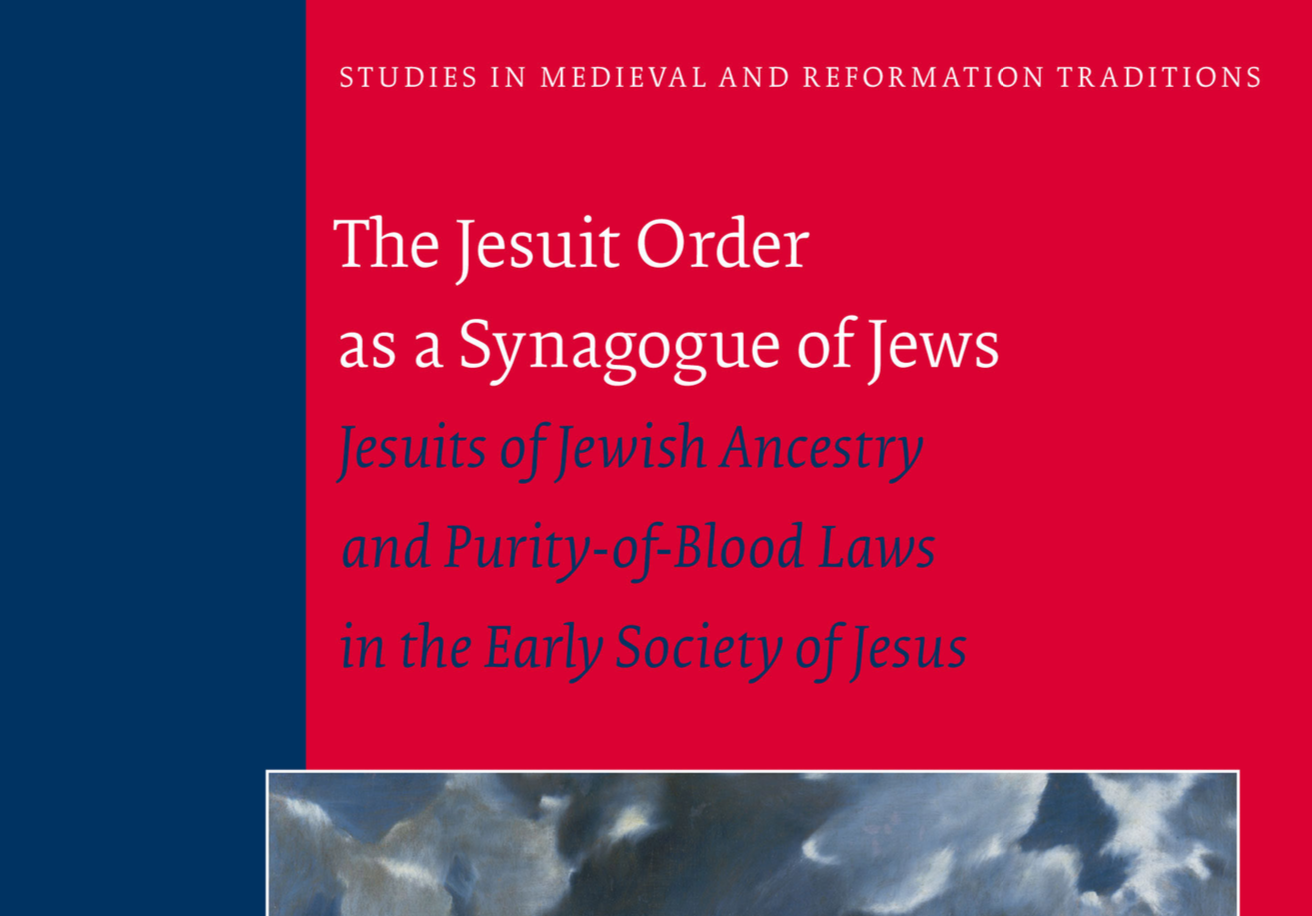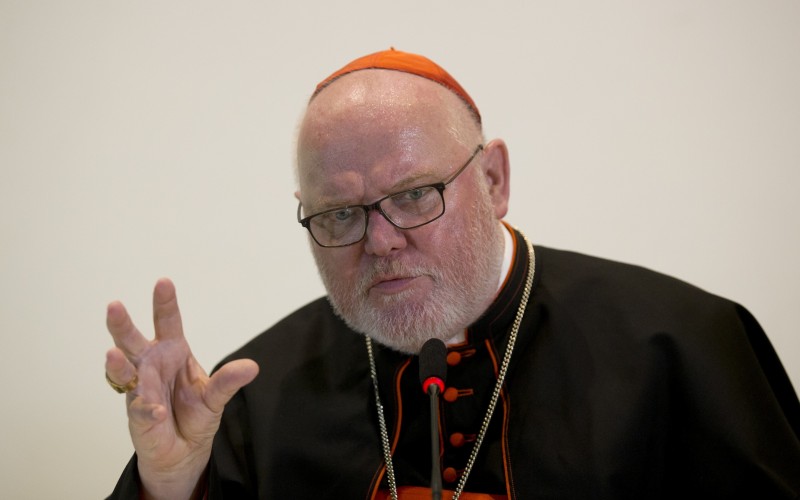Ethnos Needs Logos (and Genos)
Dr. E. Michael Jones is a prolific and pugnacious Catholic author. He is a great crusader for Truth and I admire his work tremendously. A man who can spin off a thousand pages on the “Jewish Revolutionary Spirit” is clearly a man with important things to say. He makes unexpected and illuminating connections like few others and has a way of reducing complex cultural or social phenomena down into a single blast furnace of a sentence. Oftentimes the result is breathtaking, as in, “modernity is rationalized sexual misbehavior.” Jones began his career by getting fired from St. Mary’s College in South Bend for being against abortion. (Listen to him tell the story.) A bit nonplussed at being considered too Catholic for a Catholic college, he launched his own magazine, now entitled Culture Wars, and almost forty years and a dozen incisive volumes later, shows no sign of slowing down. Anyone who wishes to understand the hidden forces that shape the modern world will find a trove of insights in his large body of work.
In this short essay, however, I venture to take issue with the great Dr. Jones. The “issue” arises from the fact that he insists that race is not an important focus of identity. Being a militant Catholic (in the best sense), Jones maintains that if everyone just converted to Catholicism most modern ills would take care of themselves. In this, I happen to agree with him. Imagine if the Catholic hierarchy actually converted to Catholicism! Not to mention the Jews and Muslims and the LGBT crowd! A lot of problems would vanish instantly. But alas, that’s not happening anytime soon, and meanwhile, we—the men of the West—have a fight on our hands. In short, I believe that race is much more important than Jones is willing to concede, both as a component of individual humans and as a factor in history and culture.
Aware of his stance on race, I recently bought his two booklets Ethnos Needs Logos and Benedict’s Rule. Idly flipping through the first one, I came across the sentence, “Without the Catholic Church, Europe would resemble Somalia.” Now, I like to think I’m a good son of Holy Mother Church, but that statement made me slightly sick to my stomach (see also Kevin MacDonald’s recent comment on the role of the Church in European history). I decided to read the books carefully and work out exactly where I stand in relation to Jones’ ideas.
The genesis of Ethnos Needs Logos was a conference on national identity conducted in Guadalajara, Mexico, during which Jones privately debated David Duke and Mark Weber (of the Institute for Historical Review) over whether race or religion is more responsible for the creation of nations. Jones vigorously expounds the idea that “Logos,” the rational and divine order of the universe as personified in Christ and now embodied in the Catholic Church, is the only force that can raise ethnic groups to the highest level of human culture. Drawing on Hegel’s Lectures on the Philosophy of World History, Jones describes how this process culminates in nationhood and the Christian state. The end of human progress, which involves the progressive understanding and social implementation of the true idea of “freedom,” is thus the Catholic West. In making his point, Jones ridicules the idea that race, mere matter as he calls it, plays a role in the moral development of mankind.
In Benedict’s Rule, published in 2017, a year before Ethnos Needs Logos, Jones discusses how imperial overreach emptied Roman identity of its meaning. (It also emptied Rome of its founding people: Appendix to Chapter 2 of Individualism and the Western Liberal Tradition—a good example of how changing the people also changes the culture.)
Jones goes on to claim that the void after the fall of the Empire was filled by religion and the growth of ethnic groups (“ethnogenesis”). He describes how the ensuing reign of chaotic tribalism was eventually tamed and civilized by the monastic Order of St. Benedict and the Catholic Church. He then switches to modern times to describe how the Church in America “controlled” ethnogenesis by creating cohesive ethnic parishes in northern cities. Jones holds that the Church constituted a powerful “ethnic group” defined by religion. Jones is an adherent of the “triple melting pot” theory, which claims that, in America, religion replaced national origin as the main bond of unity, in consequence of which there were three “ethnic groups” in America: Catholics, Protestants, and Jews. Unfortunately, the Church fell into the trap of joining the “civil rights” movement (and defining justice in racial terms) instead of defending the integrity of its ethnic parishes, and, coincidentally, its own power. Interestingly, Jones says the Catholic parishes in the northern cities should have resisted being broken up by the influx of Blacks into their neighborhoods, although elsewhere he states that “any race-based defense was either illicit or ineffectual.” (Ethnos, 40) The collapse of Catholic power in the 1960s and 1970s permitted the conservative movement to organize disaffected White Catholics, who resented the liberal turn of their Church, into a new “ethnic group.” Jones ends by predicting that globalism will soon usher in a new era of rampant tribalism, and that Islam will be the big winner if the Catholic Church does not return to its traditions.
Jones does not define “ethnic group,” but he uses the term to denote any effective social group, including tribes, religious groups, nations, and even political parties.
All in all, two very interesting booklets that support each other’s arguments with a wealth of trenchant analysis. I found myself agreeing with practically all of it, and was pleasantly intrigued half a dozen times. There is much I would like to discuss—perhaps at a later time—but at present I will confine myself to just two of Dr. Jones’ ideas.
The first statement that caught my attention is that Whites in America embrace White identity only because they are deracinated; they have lost the more important communal bonds of ethnicity and religion and have seized upon an ersatz identity:
The term “white” or “European,” . . . is the infallible sign that we are dealing with advanced deracination. White people are people who lack an identity, and so the only identity they can come up with is a negative one, namely, the opposite of black. (Ethnos, 40)
In fact, White identity in America is as old as the nation itself, especially in the South, given that the racial division between Blacks and Whites has existed since before the founding. Moreover, during the period of ethnic defense culminating in the 1924 immigration law, it was common for White Americans to have a sense racial identity and to feel threatened by immigration, especially immigration of Eastern European Jews. Such ideas, often influenced by Darwinism, were published in prominent media and by publishing houses with excellent establishment reputations. (See Chapter 6 of Individualism and the Western Liberal Tradition.)
I agree that many White Americans are deracinated in the current situation, but this is after the rise of a new (fundamentally Jewish) elite and decades of propaganda from the mainstream media, activist organizations, and academia fostering White guilt and the idea that White racial identity (and only White racial identity) is a psychopathology and has no scientific basis—the latter an idea that Jones evidently approves.
The same is true of other identities. Christianity has gone by the wayside; so has identity based on national origins, and even old-style patriotism has been ridiculed and outlawed. Whites are desperately looking for community. (I firmly believe that this loss of identity is the real cause of the high White suicide rate.) Some are looking back to the White heritage of “the West” and trying to develop a focus of attachment and action based on that. If these people can mobilize others to defend White people and Western Culture, then I support their efforts. Along with Dr. Jones, I hope that the West returns to the old Faith, but the question of bare survival is now looming, and I prefer the survival of pagan White culture to the death of all White culture.
Jones denigrates racial identity as materialist and artificial—not simply a lesser choice among various possibilities, but one completely in error. However, the enemies of Western Man and Christianity have grouped heritage Americans into the category of “White,” and are waging war on them—us—on that basis. If we are not interested in seeing ourselves as White, our enemies are. Even more urgently, the demographic situation in America is grinding inexorably onward, precisely against Whites as Whites. Therefore, it seems we will have little choice but to fight under that flag. The longer the enemy wages war against “Whites,” the more defenders will take up the banner thrust into their hands.
I certainly do not regard White identity as negative or artificial. However, if one takes it as a catch-all term, then, yes, it is a very thin concept, because it encompasses so many groups across the world that differ on all points except race. What unites all those Whites in the various nations? Precious little. On what basis could they be united for common action? It is White identity within the various nations that could provide some traction, for there it could draw upon common history and traditions. That is the key: race by itself probably cannot provide a basis for unity and action, but fused with religion, national feeling, and anything else that helps bond society together, it could give rise to a powerful ethnos. Therefore, Whites should seek to reactivate their traditional identities based on religion, nation, or region, as well as on race.
The next fifty years is going to be a riveting lesson in the dynamics of imperial disintegration and ethnogenesis. Seeking solidarity in Whiteness, if it does nothing more than facilitate strong bonds between groups of Whites caught in a civil war fought along racial lines, will have served a vital purpose.
The second point that demands explication is Jones’ denial that race is anything more than mere matter, without importance in relation to the faculties of the soul, human behavior, or society at large. He cuts the ground away completely from any attempt to invest race with meaning for individuals or society:
Race . . . is a creation of the biological materialism which found its most prominent spokesman in Charles Darwin. Materialism is based on the primacy of matter, and matter, as everyone trained in Thomistic philosophy knows, is the principle of differentiation. Matter, therefore, cannot lead to unity.” (Ethnos, 12)
He insists that men are inclined to race pride “because we are all by fallen nature carnal and are always ready to choose material goods over spiritual goods.” (Ethnos, 22)
But why should unity be an overriding goal? This pre-judges the question of whether race exists and whether race a primary dividing line in the contemporary world, resulting in a situation where anti-White hatred is increasingly prominent in the mainstream media and on social media. This utopian ideal of a harmonious humanity united by spiritual ideals ignores the reality of what is happening all around us.
Moreover, the good doctor, it seems to me, is denying heredity and race any role in the mental and moral make-up of men. First, heredity influences human behavior. Genes or other biological factors don’t determine human behavior, because every normal human possesses free will in his actions. However, there is a cascade of modern research that shows how genetic factors predispose people to this behavior or that. Ignoring these data results in a philosophical idealism dedicated to the spiritual unity of mankind in which the mind is completely separate from the body. Jones is quite aware of Jewish influence on the culture of West, but does anyone seriously believe that a philosophical idealism based on the unity of mankind will ever appeal to Jews? Will it ever appeal to the (now virtually hegemonic) cultural left and its addiction to the racial and gender identity politics of division?
Genes can make some people more inclined to alcoholism and violence, among other behaviors. I should stress that no gene or complex of genes can make a person an alcoholic. That would represent the destruction of free will and reduce men to genetic robots. A person repeatedly chooses to drink—that makes an alcoholic. The genes nudge a person in that direction, or incline a person to that behavior, but only the will, seated in the soul, directly pulls the trigger on the action. Thus, genetic factors may sway the will, but do not impel it.
In addition to genetic influence on behavior, there appears in Catholic teaching the idea that heredity contributes to the moral make-up of man.
First, some background. In Catholic teaching, the human is a perfect union of two distinct elements, the body and the soul. The human soul is both the animating principle of the body, and an immortal spirit. (The souls of animals are not spirits and go out of existence with the death of the animal.) The souls of men have spiritual faculties or powers called the intellect and the will. The intellect has its seat in the soul, but it is dependent upon the senses to provide it with material for its operations. How and to what extent the intellect is dependent upon the physical brain is a problem that has long fascinated not only me but also centuries of Catholic theologians and psychologists. As to why intelligence is so variable in humans, there are two possibilities. The first is the idea that the physical quality of the brain, if excellent, permits greater reach and power to the operations of the intellect; however, if it is inferior, it can limit mental performance. The second possibility is that God fashions the soul and its intellect according to the constitution of the body and the brain. Both of these cases permit the conclusion that the material body has an impact on the soul and its capabilities.
The idea of heredity is surprisingly prominent in Catholic teaching. It was with intense interest that I recently read the following passages from the pen of the great German-born Thomist, Abbot Vonier, in his classic 1913 work The Human Soul:
There seems to be no contradiction in supposing that spiritual souls may differ widely in qualities, God forming them according to the differences of hereditary dispositions. . . . Saint Thomas Aquinas distinctly inclines towards the view that Almighty God fashions the soul He creates according to the body into which He infuses it. As long as the soul’s spirituality is safeguarded, there is no reason why the body, with its qualities, should not be to God the occasion for creating a soul with corresponding qualities. (Vonier, 45-46)
[Man’s physical make-up] has its qualities and its defects, which the soul cannot change
. . . the soul’s office is . . . to tune all the strings of nature to the highest pitch; but all the tuning in the world will never change the make of the instrument. (Vonier, 47)
These are explosive ideas. They support the proposition that humans have varying capacities (including moral capacities) that follow the dispositions of heredity. Similar statements appear in the work of other theologians. The Jesuit Ernest R. Hull, in The Formation of Character, says
The bodily gifts of nature are . . . unequally distributed; and hence a huge difference of quality in the composition of the brain, nerves, sensitive organs and the rest. And since all our functionings in life have to be carried on through this conjoint instrument called the body, it follows that men come into existence with an immense initial difference of mental and even moral capacity, according to the qualities of these different organs. … Hence there is no difficulty in acknowledging the fact that some people are born stupid, others clever, some weak and others strong, some sluggish . . . others vivacious and active. . . . Even in the moral order there are some who are almost literally born angels in the flesh, while others are painfully prone to anger, sloth, gluttony. (Hull, 113; emphasis added)
Further support comes from the 1908 Catholic Encyclopedia:
Character is the expression of the personality of a human being. . . . A man’s character is the resultant of two distinct classes of factors: the original or inherited elements of his being, and those which he has acquired. On the one hand, every human being starts with a certain nature or disposition—a native endowment of capacities for knowledge, and feelings, and tendencies towards volitions and action—which varies with each individual. This disposition is dependent in part on the structure of the bodily organism and especially of the nervous system which he has inherited; in part, perhaps, also on his soul which has been created. . . . The transmission from parent to offspring of hereditary dispositions, therefore, involves no conflict with the doctrine of the creation of each human soul. (Catholic Encyclopedia, “Character”)
There is nothing more central to man than his character. Character is the truest manifestation of who a man is, a direct expression of his moral temper. And, character is partly derived from heredity. It is based on temperament and formed by the habitual action of the will, which decides between courses of action. (Temperament can be thought of as the natural inclinations of a person, manifested especially in his personality, with a strong hereditary component.) Character is the “group of internal dispositions, issuing from heredity, environment, education, or deliberately formed habits, which preside over one’s habitual conduct.” (Attwater, A Catholic Dictionary, 96; emphasis added)
Within mainstream Catholic theology, the body becomes more than dumb “matter” when it is united to a soul. The soul does not spiritualize or divinize the body, but it does raise it to full partnership with an immortal spirit, all of whose functions are performed through and with the body and its natural endowment. The passages above show us that the physical, hereditary qualities of the body impart to the human being a not-inconsiderable part of his moral constitution.
To make the obvious connection, if heredity is important and if the races differ significantly in their genetic endowment, then race is real.
Thus, the body—heredity—race—contributes to the formation of the psychological and moral human being. Man is a union of the physical and the spiritual worlds, each with a sphere of influence over the other. Yes, the soul is much more important, but the body is more than a cipher, much more than “mere matter.”
Lastly, I would like to address the preposterous claim that “Without the Catholic Church, Europe would resemble Somalia.” Without in any way downplaying the tremendous civilizing work of the Catholic Church, I present for your meditation two numbers:
Average IQ of Europe: 100.
Average IQ of Somalia: 68.
From Human Rights Watch:
If a person scores below 70 on a properly administered and scored I.Q. test, he or she is in the bottom 2 percent of the American population and meets the first condition necessary to be defined as having mental retardation. . . . An I.Q. in the 60 to 70 range is approximately the scholastic equivalent to the third grade.
I know that Dr. Jones often resorts to hyperbole, but no White society would ever resemble Somalia.
As important as it is, the spiritual cannot provide a complete explanation for society and history, because man has a physical body and lives in a physical world. True Catholic teaching does not despise matter, but rather exalts it because it was made by God. Indeed, the highest form of matter in the universe is the human body, animated by a soul. Catholics should not despise the concept of race either, because it too was created by God. Catholic teaching is (or was) very comfortable with the idea of individual human inequality in talent and character, as well as with the idea of talent-based hierarchies in society and state. There is likewise no reason to deny the obvious differences between races, other than a misguided concern to give false charity greater importance than truth. There is no profit in that.
Whether race will ever become a powerful and effective focus of identity in the beleaguered West is an open question, but it is painfully clear that the war against “Whites” is intensifying dramatically. I say we should mobilize all the forces we can lay hold of, whether spiritual or racial, and bring them to the fight.
Sources
Attwater, Donald. A Catholic Dictionary. New York: MacMillan Company, 1943.
Hull, Ernest R., S.J. The Formation of Character. St. Louis: Herder Books, no date.
Jones, E. Michael. Benedict’s Rule: The Rise of Ethnicity and the Fall of Rome. South Bend, Indiana: Fidelity Press, 2017.
Jones, E. Michael. Ethnos Needs Logos: Why I Spent Three Days in Guadalajara Trying to Persuade David Duke to Become a Catholic. South Bend, Indiana: Fidelity Press, 2018.
Maher, Michael. “Character.” The Catholic Encyclopedia. Vol. 3. New York: Robert Appleton Company, 1908. 26 Nov. 2019 <http://www.newadvent.org/cathen/03584b.htm>.
Vonier, Abbot. The Human Soul. Bethesda, Maryland: Zacheus Press, 2010.



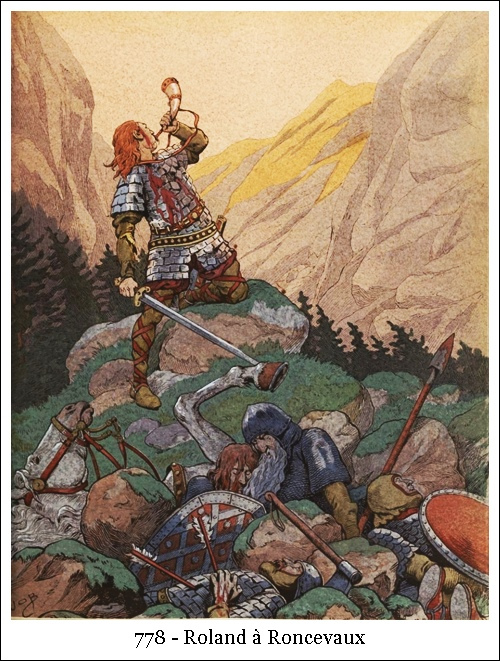
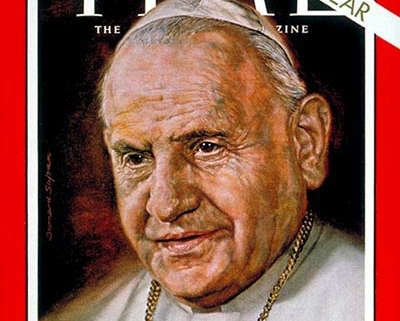
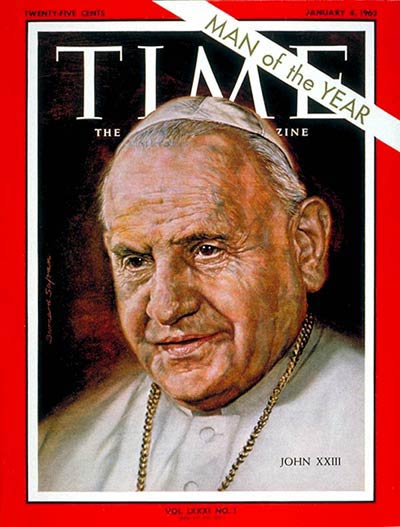
 The
The 